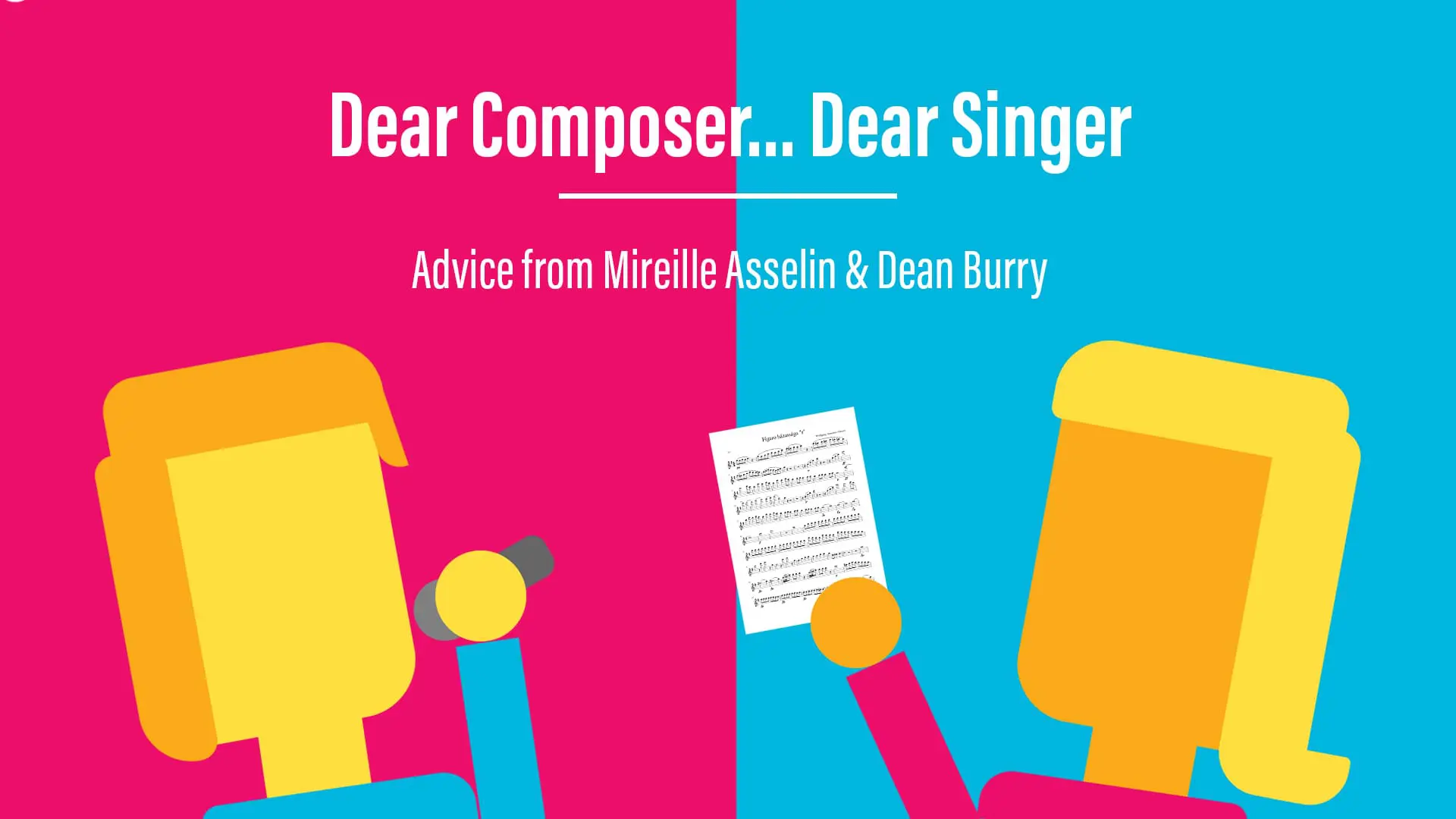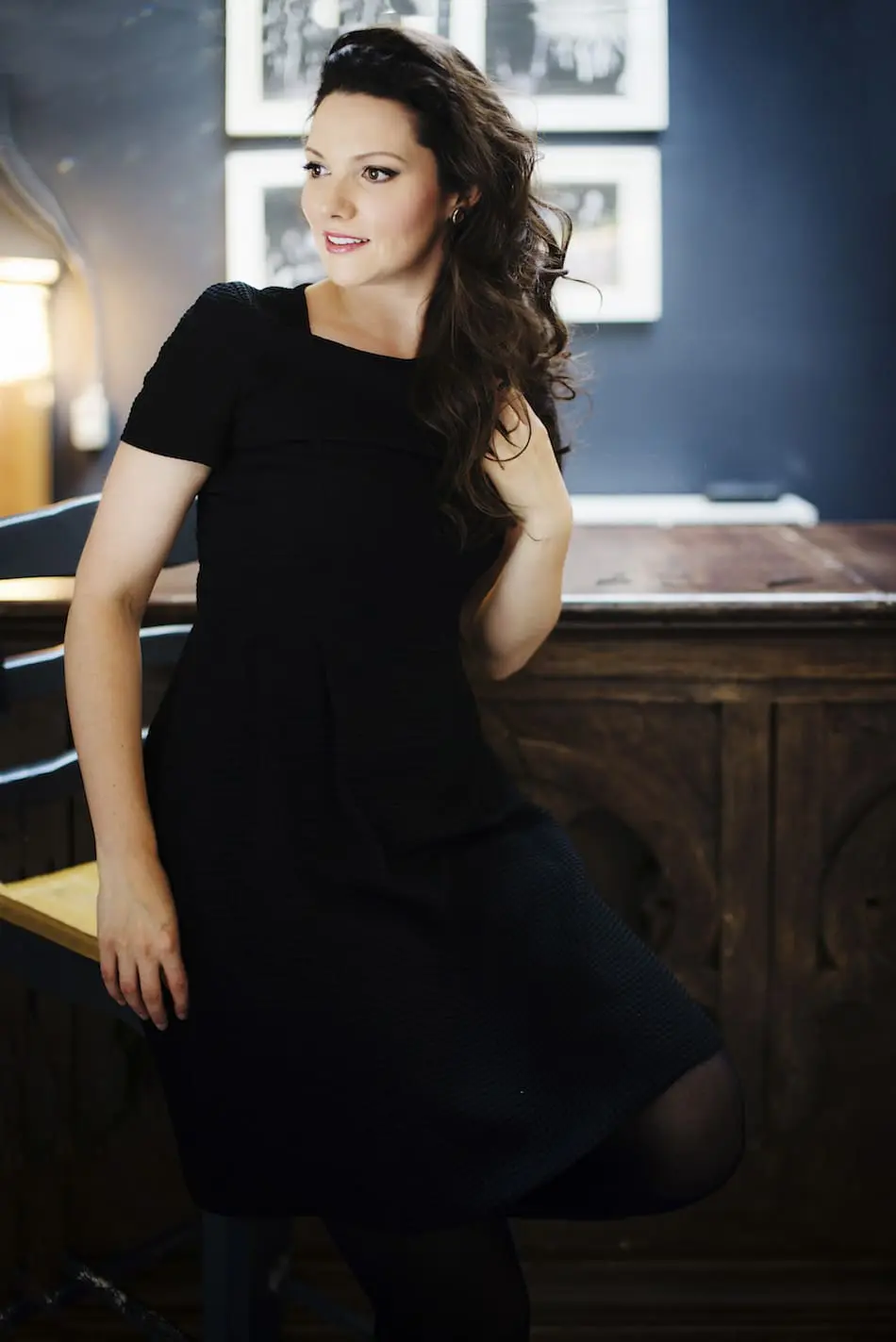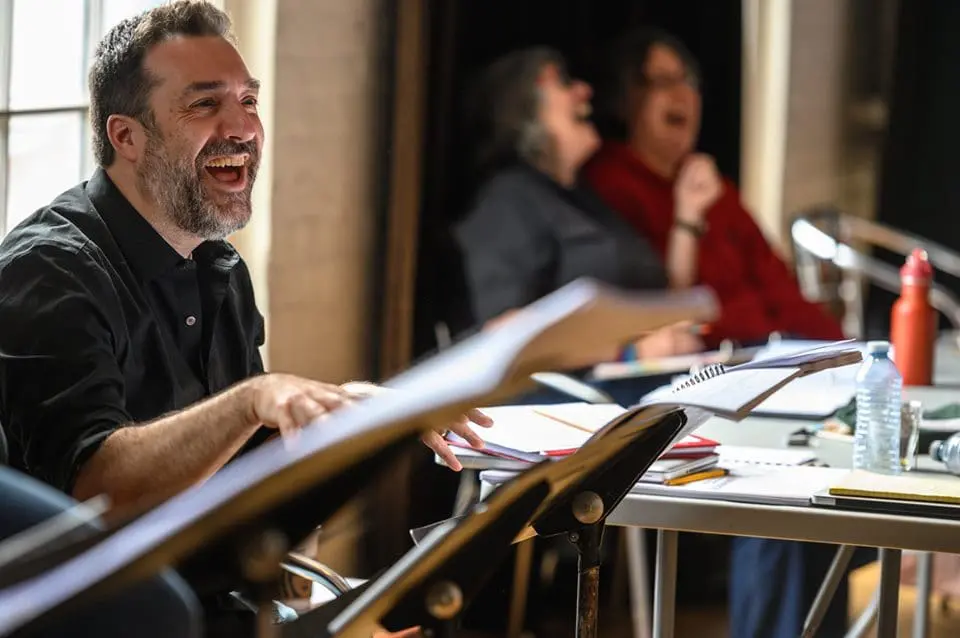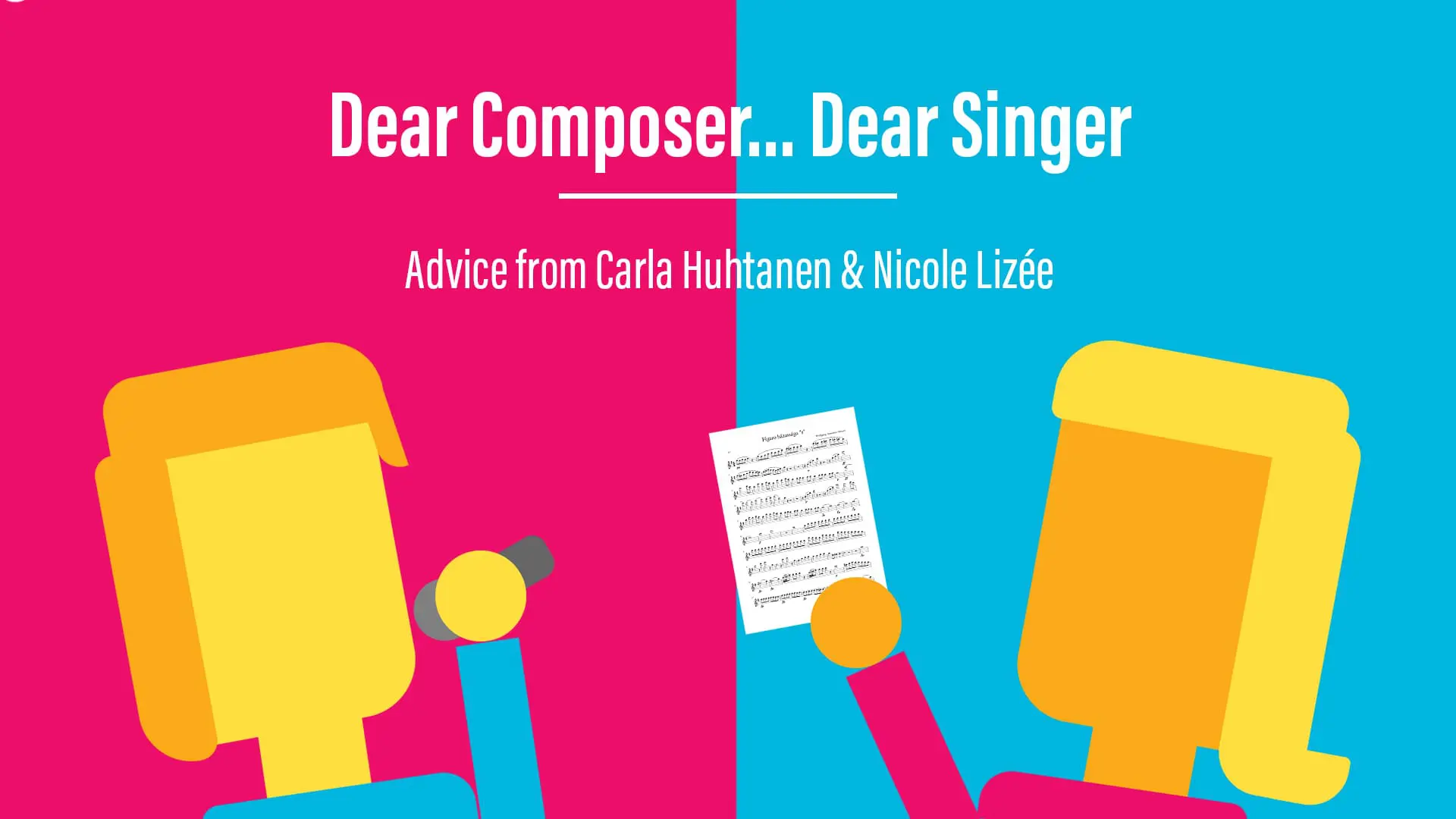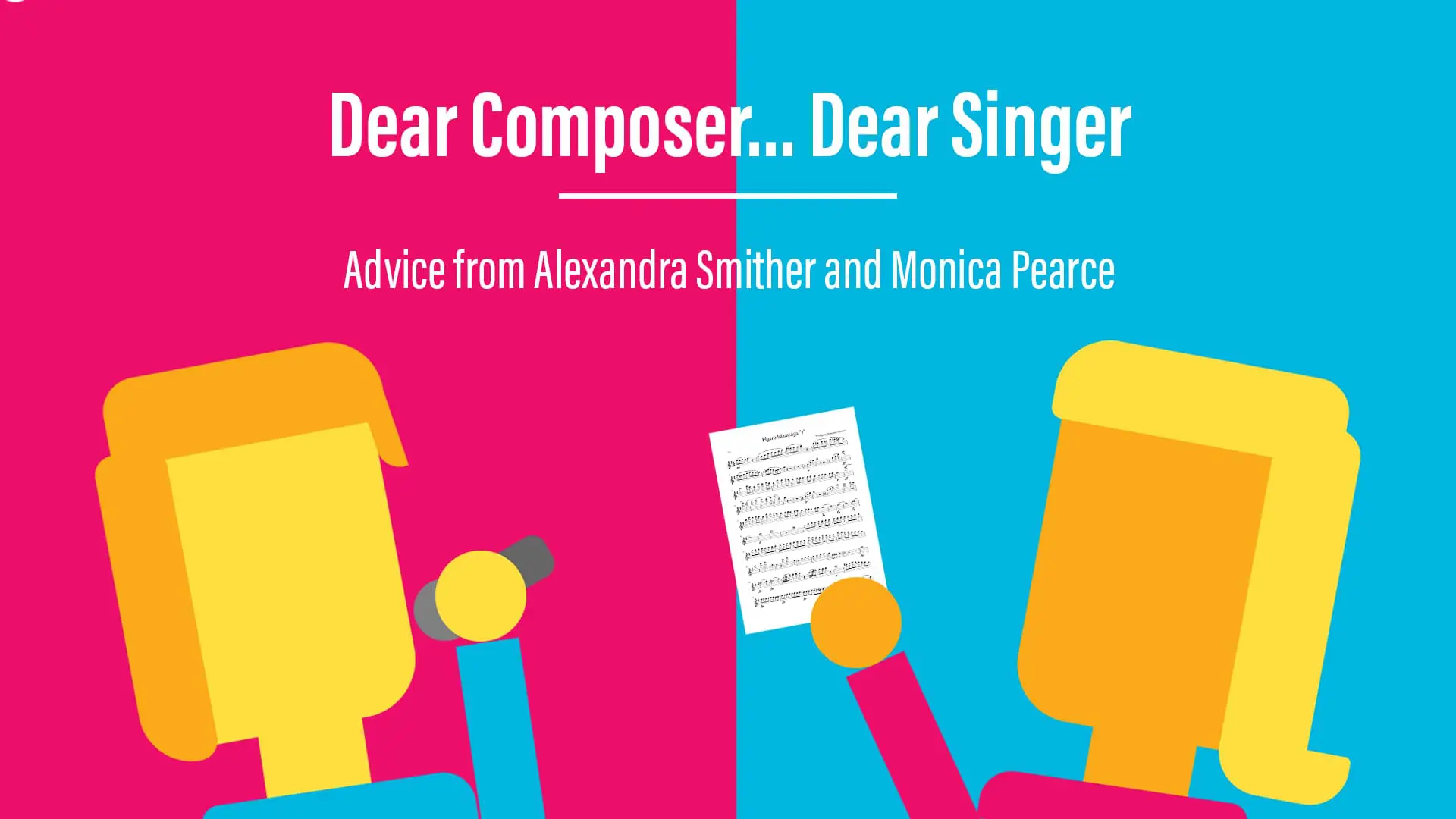When you really think about it, the communication between an opera composer and an opera singer is a bit odd: each artist has spent years honing their very specialized craft, and they come together when it’s time to do something extra-specialized – create a new opera. In reality, it’s rare for a composer to fully understand how a singer uses their instrument, and it’s equally rare for a singer to grasp the process of writing new music. We’re continuing our series of Dear composer…Dear singer, our composer-singer advice with some wise words from soprano Mireille Asselin and composer Dean Burry:
What do singers wish composers understood better about the voice?
Mireille Asselin: “Trust your singers to know how to modulate dynamics for the performance space. Hearing a singer in small studios or rehearsal spaces for initial read-throughs or coachings can be very misleading. Your impression of balance and dynamic range, especially in the very soft moments, can be completely thrown off in smaller acoustics, or by your proximity to the singers. Some large voices will sound intimidatingly loud for example, or some higher and brighter voices won’t truly bloom and project until they have space to ring out. Many many times I’ve workshopped new music with a composer who has asked for consistently softer dynamics in rehearsal, only to then ask you to dial way back up once you hit the concert hall. This can be challenging when you’ve been rehearsing it a certain way and then all of a sudden need to change your approach to sound production for the performance. By all means coach your singer on dynamics and colours and make sure to impart precisely what you want, but trust them to know how to apply that dynamic in the space.”
MA: “That ‘trust the singer’ mantra applies to performance as well. Chances are, your singer is a stage animal who really knows how to sell a piece! Certain things that work in theory on the page may not actually translate effectively to an audience. Empower your singer to make your piece the best and most engaging it can be! Ask for their input and let them know they can really go for it.
“Tessitura is not the same thing as range: just because a singer says they can sing up to a high D, doesn’t mean that they feel comfortable (or are able) to sustain tons of singing up there. Tessitura refers to the sort of ‘average’ of a given piece’s range, and is arguably a more important parameter than range. If we say something ‘sits’ too high or low, that refers to the tessitura of a piece. You want it to ‘sit’ just right for them. Too high and it’ll be tiring and nerve wracking, too low and they risk being drowned out by other voices or instrumental forces. Do however, take advance of a singer’s ‘money notes’ every once in a while. Everyone likes to show off.
“We are pumped to work with you! Nothing is more fun than getting to work with a real, live composer!”
What do you wish singers understood more about learning and interpreting new music?
Dean Burry: “This is an interesting question as so many different singers approach new music in so many different ways. Let me write the things that I have found myself repeating to singers over the last twenty years of a composition career.
“Don’t assume that something is poorly written if you can’t sight-read it or it takes a little work. While it is true that less experienced composers (and full on opera is a challenging medium to get that experience) don’t always write the most ‘singable’ music, there are a lot of composers who have really developed those skills and know what they are doing.
“There isn’t just ONE way of singing a role and every role should be approached in a different way. In my experience, some opera singers have traditionally seemed far less willing to ‘act’ with their voice the way an actor or musical theatre actor would. In the past I’ve been told by people in the field that singers ‘don’t want to hurt their voices’. However, if we go with the assumption that no one wants anyone to hurt their voices, there is SO much you can do to convey a role. Don’t sing every role like it is Verdi and don’t assume every note needs to be perfectly formed and annunciated. Effectively portraying a role requires openness, variation of tone and emotion and even freedom from what we might traditionally think of as ‘opera’.”
DB: “Finally, I know that a lot of singers, both young and old, are intimidated by composers and librettists, but any writer worth their salt knows that live performance is a collaboration. Our words and music are nothing without the life breathed into them by singers. I personally appreciate it when a singers asks me what I want from a given moment, but equally love it when a singer brings their own artistry to something I may not have even imagined. It works best as an equal partnership.”

